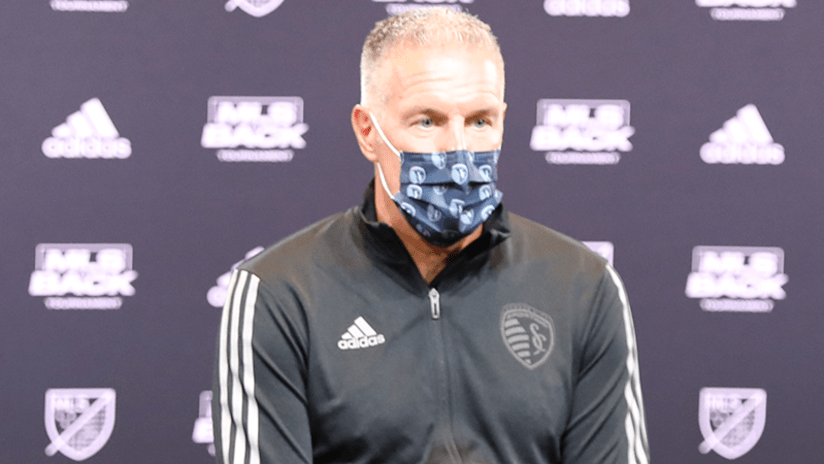When Tim Melia was sent off in the 74th minute for Sporting Kansas City in their MLS is Back tournament opener against Minnesota United on Sunday night, it seemed only a matter of time until their one-goal advantage would be overturned. Minnesota had been the more aggressive team in the second half, even after Mason Toye was forced off injured, but the sending off was the critical event that set the stage for their comeback.
In his postgame interview, Minnesota head coach Adrian Heath was asked about the importance of the red card. He acknowledged that his team were the inferior team, but that what set them apart, even with the one-man advantage was their attitude in tying the score and eventually pushing for a winner.
“Well, we’d come back into the game, that was why we got the red card," he said. "We were probably in the ascendancy at that moment, I thought we started to look dangerous on the break. We were obviously playing against 10 men. Playing against 10 men who have not played for a long, long time, obviously a little bit of desperation sets in. We started to push the extra man forward. I'm not going to sit here and say to everybody that we played well because that would be foolish, and I thought they were very good. But as I said before, you know the character of the players to keep going was terrific.”
What has been evident so far from this tournament is that many of the games have come down to the endurance and will of the players. So much time has passed since the season was initially suspended in March that no matter how great the team tactics and technical ability of the players, those qualities quickly wear out as the tiredness and lack of team chemistry begins to show. This combined exhaustion often leads to the games turning into a physical and mental grind. Especially for a team like Minnesota, who were already missing key players and leaders like Ike Opara and Luis Amarilla — who was injured during warmups.
Fighting spirit is a cliche that’s normally overused in the context of sports. Many times talent and intelligent planning dominate and supersede that will to keep pushing, but in a situation like this tournament where talent and planning can quickly fall apart due to the quickfire nature of the games and the fact that players are struggling with fitness, suddenly that spirit becomes one of the most valuable qualities that a team can have.
The red card was critical for Minnesota, but as Heath said, it was a result of their hard work in the second half. The team came out with the intention to fight, regardless of how unorganized and sloppy that fight may have been. It paid dividends with the sending off, but that still wasn’t enough.
The true mark of how hard Minnesota worked against SKC is that their goals came in injury time. It would have been easy for the players to succumb to their physical and mental tiredness at such a late stage in the game, after they had run themselves into the ground trying to maximize their one-man advantage.
But instead, they seemed to understand something essential about this tournament: that regardless of talent and particular problems that each team is facing, this competition is a test of endurance. And as long as there’s still time and strength left in the players, they can very well win a game that seemed beyond them before it even started.














